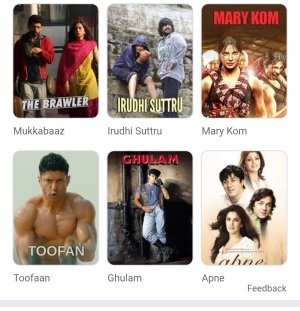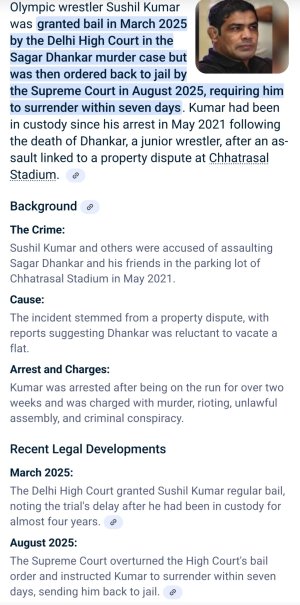well that sounds wonderful!
So when exactly are you planning to run for the post of the PM of India, just asking so we know when to start giving 2 (letters between E and G) about your intellectual views on the topic
Do know that India has started taking sports far more seriously than in the past. Over the last decade, significant funding has gone into building sports academies and improving infrastructure with the clear aim of enhancing athlete participation and ultimately increasing our medal tally in global events.
But it’s important to remember, changes of this scale don’t happen overnight, especially in a country where there hasn’t traditionally been a strong sports culture.
We are not China, where children are pushed from an early age into highly regimented medal-focused training regardless of if they even like the sport that much. India is a gigantic democracy where transformation happens gradually. Small nudges, once multiplied across a nation of 1.4 billion people, lead to massive change over time and that process is very much underway.
Speaking personally, for me it isn’t just about the medals. What I deeply admire about many Western nations is how they’ve integrated sports into the very fabric of everyday life. Sports there are not only about competition; they’re about health, family bonding, and building community. Families take part in activities like tennis, skiing, cycling, swimming, or surfing, not necessarily to produce champions, but to enjoy time together and cultivate a shared culture of activity. That, in my opinion, is the best use of sports, as a tool for well-being, social connection, and a stronger society.
Of course, there will always be people who crave the adrenaline rush of pushing human capabilities to the extreme. For them, niche and high-intensity sports like MMA provide a platform to showcase their passion to the world, and there will always be an audience for that including myself. But I see that as a different domain altogether, distinct from the role of general sports in everyday life.
Take wrestling in Haryana, for example. It became a massive phenomenon, producing world-class athletes and bringing recognition to the region. Yet it also came with darker sides. Our once-celebrated Olympic medalist, Sushil Kumar, is now serving a prison sentence for his involvement in a murder tied to gang culture. Sadly, this isn’t an isolated case globally, there’s extensive research showing how athletes in violent or substance-abuse-prone sports often suffer long-term mental and social deterioration.
So while medals and achievements on the world stage are important, the real victory for India would be when sports become a natural part of everyday life for ordinary families not just a spectacle of glory but a culture of fitness, joy, and togetherness. That’s the end goal.
























